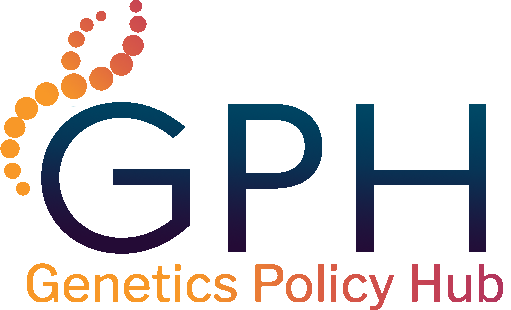From 2004 to 2024, the Health Resources and Services Administration (HRSA) funded the National Coordinating Center for the Regional Genetics Networks (NCC). NCC developed and maintained the Genetics Policy Hub.
With the conclusion of NCC funding, the Genetics Policy Hub (GPH) will no longer be updated or maintained. Information on GPH should be used for historical reference only.
Michigan
This data is meant to be used for educational purposes to inform providers, patients, insurers, and state Medicaid agencies what genetic services may or may not be written into each state’s Medicaid policy. The database is not meant to indicate or imply whether a certain program will cover a specific service, since many decisions are made on a case by case basis. If you have specific questions about whether a service is covered, you should reach out to your plan administrator. Please see this disclaimer below for more information.
Medicaid Coverage Information Published
State Contact Information
Elizabeth Hertel, Director of Michigan Health and Human Services
333 S. Grand Ave
P.O. Box 30195
Lansing, Michigan 48909
Hours: Monday – Friday,
8:00 am – 5:00 pm ET
517-241-3740
https://www.michigan.gov/mdhhs/contact-mdhhs
Michigan Medicaid Provider Manual (CD version)
MDHHS /Medicaid Program Policy Division
PO Box 30479
Lansing, MI 48909
Fax 517-335-5136
General Genetic Testing Criteria
Medicaid covers genetic and molecular tests when clinically indicated by one or more of the following:
- The test is necessary to confirm a suspected genetic disease/condition when a definitive diagnosis remains uncertain, and the results will directly impact the beneficiary’s treatment or management.
- The test will guide treatment and management of a beneficiary already diagnosed with a disease/condition by one or more of the following:
- Predicting progression, aggressiveness, or recurrence.
- Selecting specific medications, treatments, and interventions.
- The test will predict a risk of a genetic disease/condition or is necessary to detect an undiagnosed health condition in an asymptomatic beneficiary and the results will directly impact the beneficiary’s treatment or management. Coverage of these screening tests is limited to tests recommended as Grade A or B by the United States Preventive Services Task Force (USPSTF) or tests specially identified in Medicaid policy (e.g,. screening for fetal trisomy 13, trisomy 18, or trisomy 21 using noninvasive prenatal testing [NIPT]).
To be eligible for Medicaid reimbursement, the following requirements apply:
- The test must be ordered by a Medicaid-enrolled, licensed physician (MD or DO), physician assistant, or advanced practice registered nurse (e.g., Certified Nurse Practitioner [NP], Certified Clinical Nurse Specialist [CNS], and Certified Nurse-Midwife [CNM]), acting within their professional scope of practice.
- The beneficiary must have one or more of the following:
- Documented clinical features symptomatic of a disease/condition.
- A risk of inheriting the disease/condition based upon factors including, but not limited to, personal history, family history, documentation of a genetic mutation and/or ethnic background.
- Other disease/condition-specific criteria that places them at risk.
- A physical examination, medical history, family history/pedigree analysis, and conventional diagnostic testing (when appropriate and applicable) must be completed prior to testing.
Genetic Testing Not Covered
Genetic and molecular testing is not a covered service for:
- Criteria other than those outlined above.
- Establishing a diagnosis or condition that can be diagnosed by conventional diagnostic methods unless conventional testing is not required by Medicaid, or the genetic test is identified as a Grade A or B recommendation by the USPSTF.
- Confirming a diagnosis or condition that was previously diagnosed by another testing method
(e.g., conventional testing). - When the need for the test is not clinically indicated for the beneficiary’s condition.
- Purposes where the test results would not directly influence the management or treatment of the disease or condition.
- Informational purposes or management of a beneficiary’s family member.
- Testing performed by a second, independent laboratory solely to validate or confirm the
beneficiary’s previous test results using a methodology designed to detect the same genetic or molecular alteration as the original test. - Screening or carrier testing for the sole purpose of family planning counseling and/or infertility services.
- Screening for medical research purposes.
- Minors under the age of 18 for adult-onset conditions that have no preventative or therapeutic treatments.
- Testing performed in a non-Clinical Laboratory Improvement Amendments (CLIA) certified
laboratory. (text added per bulletin MMP 23-19)
Rapid Whole Genome Sequencing is not covered when one of the following reasons explains the beneficiary’s admission:
- An infection or sepsis with normal response to therapy
- Confirmed prenatal/postnatal genetic diagnosis consistent with the beneficiary’s condition
- Hypoxic-Ischemic Encephalopathy (HIE) with a clear precipitating event
- Isolated prematurity
- Isolated Transient Tachypnea of the Newborn (TTN)
- Isolated unconjugated hyperbilirubinemia
- Nonviable neonate
- Trauma
- Meconium aspiration
State Specific Definition
A genetic test or molecular test as defined in §17001 of Public Act 368 of 1978 means the analysis of
human deoxyribonucleic acid (DNA), ribonucleic acid (RNA), chromosomes, and those proteins and
metabolites used to detect inheritable or somatic disease related genotypes or karyotypes. These
specialized diagnostic laboratory tests may identify increased risks of health problems, help choose
treatments, or assess patient responses to treatments.
Genetic Services for Children
Genetic Counseling Requirement
The Michigan Genetic Counselor Licensing Guide
https://www.michigan.gov/lara/-/media/Project/Websites/lara/bpl/Genetic-Counselors/Licensing-Info-and-Forms/Genetic-Counselor-Licensing-Guide.pdf?rev=475ae8cebbd1476da3f36b8b2e131cae&hash=796531843BA3A7A28D875409A655238A
Medicaid covers medically necessary genetic counseling services as defined in section 333.17001 (Act 368 of 1978) when ordered and performed by a Medicaid-enrolled physician, PA, or APRN (NPs, CNSs, and CNMs). Genetic counseling may also be provided by a Medicaid-enrolled licensed Genetic Counselor. Genetic Counselors should refer to the Practitioner chapter for additional information. Counseling is covered when provided in consideration of, or in conjunction with, genetic testing, or provided in relation to a genetic or congenital condition. Services are considered medically necessary when there is an expectation that a genetically inherited or acquired condition exists, and the beneficiary displays clinical features or is at risk of inheriting the disease/condition based upon factors including, but not limited to, personal history, family history, documentation of a genetic mutation, and/or ethnic background.
Metabolic Formula Coverage Legislation
On February 1, 2015, Michigan Medicaid revised its policies to align with current medical practice for the treatment of IEM disorders (Medicaid Bulletin MSA 14-66).19 These policies now include coverage for orally- administered enteral nutrition when the beneficiary is identified with an IEM disorder via the International Classification of Disease upon prior
authorization.
Medicaid Bulletin MSA 14-66:
https://www.michigan.gov/-/media/Project/Websites/mdhhs/Folder3/Folder2/Folder2/Folder102/Folder1/Folder202/MSA-14-66.pdf?rev=36f188d253bd49f7bcb3221c896a8c16
Metabolic Formula Coverage & Criteria
Enteral nutrition (administered orally) may be covered for beneficiaries under the age
of 21 when:
- A chronic medical condition exists resulting in nutritional deficiencies, and a threemonth trial is required to prevent gastric tube placement; or
- Supplementation to regular diet or meal replacement is required, and the
beneficiary’s weight-to-height ratio has fallen below the fifth percentile on standard
growth grids; or - Physician documentation details low percentage increase in growth pattern or
trend directly related to the nutritional intake and associated diagnosis/medical
condition.
For CSHCS coverage, a nutritionist or appropriate pediatric subspecialist must
indicate that long-term enteral supplementation is required to eliminate serious impact
on growth and development.
For Healthcare Common Procedure Coding System (HCPCS) code B4162, the
beneficiary must have a specified inherited disease of metabolism identified by the
International Classification of Diseases (ICD).
For beneficiaries age 21 and over:
- The beneficiary must have a medical condition that requires the unique
composition of the formula nutrients that the beneficiary is unable to obtain from
food; or - The nutritional composition of the formula represents an integral part of treatment
of the specified diagnosis/medical condition; or - The beneficiary has experienced significant weight loss.
For Healthcare Common Procedure Coding System (HCPCS) code B4157, the
beneficiary must have a specified inherited disease of metabolism identified by the
International Classification of Diseases (ICD).
Enteral formula are covered when the diagnosis/medical condition requires placement
of a gastric tube and nutrition is administered by syringe, gravity, or pump.
Prior Authorization Requirements
Authorization is required for most genetic and molecular laboratory tests. (Refer to the Community
Health Automated Medicaid Processing System (CHAMPS) Code Rate and Reference tool for authorization necessity.) Authorization requests must be submitted to MDHHS within 30 days of the DOS using the Genetic and Molecular Laboratory Test Authorization Request form (MSA-2081). Specimen processing should not be completed until after the authorization request has been approved. (Refer to the Forms Appendix for a copy of the form, including form completion instructions.)
Authorization requests require medical documentation submitted by the beneficiary’s Medicaid enrolled treating/ordering provider (i.e., MD, DO, PA, NP). Medical necessity letters or test request forms submitted by the performing laboratory and signed by the treating/ordering provider will not be accepted as a substitute for clinical documentation from the medical record or completion of MSA-2081. The completed MSA-2081 and supporting clinical documentation must document the following:
- Indication for the test. Indications should be beneficiary specific and clinical in nature.
- Clinical notes that clearly detail the beneficiary’s related signs and symptoms.
- Family history relevant to the beneficiary’s condition and test being requested. A family pedigree analysis must be made available upon request.
- Other related testing or clinical findings of the beneficiary or family member.
- Clinical documentation supporting that the test results will be used to significantly alter the
management or treatment of the disease. This definitive treatment or action plan should be
specific to the beneficiary and completed by the provider who will manage the beneficiary using the test results. - The name and NPI number of the laboratory performing the test.
- The name, specialty, and NPI number of the provider ordering the test.
Prior Authorization Forms
Fee Schedule
BRCA Testing Coverage
Yes, it is covered.
Requirements for BRCA
Medicaid covers genetic and molecular tests when clinically indicated by one or more of the following:
- The test is necessary to confirm a suspected genetic disease/condition when a definitive diagnosis remains uncertain, and the results will directly impact the beneficiary’s treatment or management.
- The test will guide treatment and management of a beneficiary already diagnosed with a disease/condition by one or more of the following:
- Predicting progression, aggressiveness, or recurrence.
- Selecting specific medications, treatments, and interventions.
- The test will predict a risk of a genetic disease/condition or is necessary to detect an undiagnosed health condition in an asymptomatic beneficiary and the results will directly impact the beneficiary’s treatment or management.
Cystic Fibrosis Screening
Coverage is available.
Hereditary Cancer Testing Coverage
Medicaid covers genetic and molecular tests when clinically indicated by one or more of the following:
- The test is necessary to confirm a suspected genetic disease/condition when a definitive diagnosis remains uncertain, and the results will directly impact the beneficiary’s treatment or management.
- The test will guide treatment and management of a beneficiary already diagnosed with a disease/condition by one or more of the following:
- Predicting progression, aggressiveness, or recurrence.
- Selecting specific medications, treatments, and interventions.
- The test will predict a risk of a genetic disease/condition or is necessary to detect an undiagnosed health condition in an asymptomatic beneficiary and the results will directly impact the beneficiary’s treatment or management.
Lynch Syndrome Testing Coverage
Yes, it is covered.
Microarray Testing
Newborn Screening
Newborn screening reimbursement is included in Medicaid’s payment to the birthing hospital, birthing
center, or other healthcare facility through the facility’s Diagnosis Related Group (DRG) rate and is not
separately reimbursable.
If a NBS disorder is suspected, follow-up diagnostic laboratory testing is a Medicaid covered benefit.
Panel Testing
Medicaid defines multi-gene panels as any assay that simultaneously tests for more than one gene
associated with a condition or symptom. The term “gene”, when used throughout this section, will be used to indicate a gene, region of a gene, and/or variant(s) of a gene.
Genes assayed on the same DOS will be considered assayed in parallel if the result of one assay does not affect the decision to complete the assay on another gene, and the genes are being tested for the same indication. If a laboratory assays multiple genes simultaneously in parallel, then those genes will be considered part of the same panel. As a panel constitutes a single procedural service, one procedure code must be submitted for the panel. The laboratory should not report multiple individual procedure codes describing the gene component test results.
If a procedure code is available for the multi-gene panel test, this procedure code should be utilized. If no procedure code accurately describes the panel performed, an unlisted molecular pathology or unlisted molecular multi-analyte assay with algorithmic analysis procedure code (as applicable) may be used.
When an unlisted procedure code is reported, providers should include the name of the panel test in box 21 of form MSA-2081. The test name should also be reported in the Procedure Code Comment field in the MDHHS CHAMPS authorization form.
Genes assayed on the same DOS will be considered assayed serially when the results of one or more gene analyses determines whether additional analyses are reasonable and necessary. When genes are serially assayed, the laboratory should submit claims with the genes reported individually.
Pharmacogenetic Testing
Coverage is available.
Prenatal Testing Offered
Medicaid covers medically necessary NIPT analyzing cell-free fetal DNA in maternal serum when used to screen for fetal trisomy 21 (Down syndrome), trisomy 18 (Edwards
syndrome), and trisomy 13 (Patau syndrome). NIPT is a screening test and a definitive prenatal diagnosis of one of these trisomies requires confirmation by invasive diagnostic
testing. Effective for services performed on or after May 1, 2023, Medicaid will extend NIPT coverage to all pregnant beneficiaries regardless of the beneficiary’s age or risk factors when performed at or after 10 weeks of gestation. Medicaid will cover testing once per pregnancy. If medically necessary, and on a case-by-case basis, PA may be requested
to allow for repeat testing. The use of NIPT for fetal conditions other than those specified above is not covered. Parallel or simultaneously testing with multiple screening tests for aneuploidy will not be covered.
Medicaid recommends beneficiaries wishing to undergo NIPT screening receive pre- and post-test genetic counseling from a certified genetic counselor or a qualified healthcare professional.
NIPT screening performed on or after May 1, 2023, will no longer require PA when performed by a Medicaid-enrolled laboratory
Whole Exome Sequencing
Medicaid covers medically necessary rapid whole genome sequencing (rWGS) testing for the evaluation of critically ill infants admitted to an inpatient intensive care unit with a complex illness of unknown etiology.
rWGS is medically necessary when all the following apply:
- The beneficiary is one year of age or less;
- The beneficiary’s signs or symptoms suggest a rare genetic condition that cannot be diagnosed by a standard clinical work-up;
- The beneficiary’s signs and symptoms suggest a broad, differential diagnosis that could require multiple genetic tests if rWGS was not performed;
- Timely identification of a molecular diagnosis is necessary in order to guide clinical decision making, and the rWGS results will guide the treatment and/or management of the beneficiary’s condition; and
- At least one of the following clinical criteria apply to the beneficiary:
- Multiple congenital anomalies
- Specific malformations highly suggestive of a genetic etiology
- An abnormal laboratory test suggests the presence of a genetic disease or complex metabolic phenotype (e.g., abnormal newborn screen, hyperammonemia, or lactic acidosis not due to poor perfusion)
- Refractory or severe hypoglycemia
- Abnormal response to therapy related to an underlying medical condition affecting vital organs or bodily systems
- Severe hypotonia
- Refractory seizures
- A high-risk stratification on evaluation for a Brief Resolved Unexplained Event (BRUE) with any of the following features:
- Recurrent events without respiratory infection
- Recurrent witnessed seizure-like events
- Required cardiopulmonary resuscitation (CPR)
- Abnormal chemistry levels (e.g., electrolytes, bicarbonate, lactic acid, venous blood gas, glucose) suggestive of inborn error of metabolism
- Abnormal cardiac diagnostic testing results suggestive of possible channelopathies, arrhythmias, cardiomyopathies, myocarditis, or structural heart disease
- Family genetic history related to beneficiary’s condition
Other Tests Covered
Other Information
Resources
Newborn Screening Reimbursement

Disclaimer: The information contained in the database has been obtained from sources believed to be reliable but NCC has not attempted to validate or confirm the information. The database may be updated periodically. However, the accuracy and completeness of the information contained in the database cannot be, and is not, guaranteed. NCC makes no warranty of the accuracy, completeness or timeliness of this information, and shall not be liable for any decision made in reliance on this information. It is the user’s responsibility to verify this information by contacting the state Medicaid agency directly.
The database contains links to third-party websites. These links are provided solely as a convenience to users and not as a guarantee, warrantee, or recommendation by NCC of the content on such third-party websites or as an indication of any affiliation, sponsorship or endorsement of such third party websites. NCC is not responsible for the content of linked third-party sites and does not make any representations regarding the privacy practices of, or the content or accuracy of materials on, such third-party websites. If you decide to access linked third-party websites, you do so at your own risk. Your use of third-party websites is subject to the terms of use for such sites.

